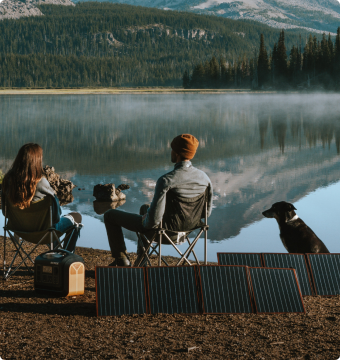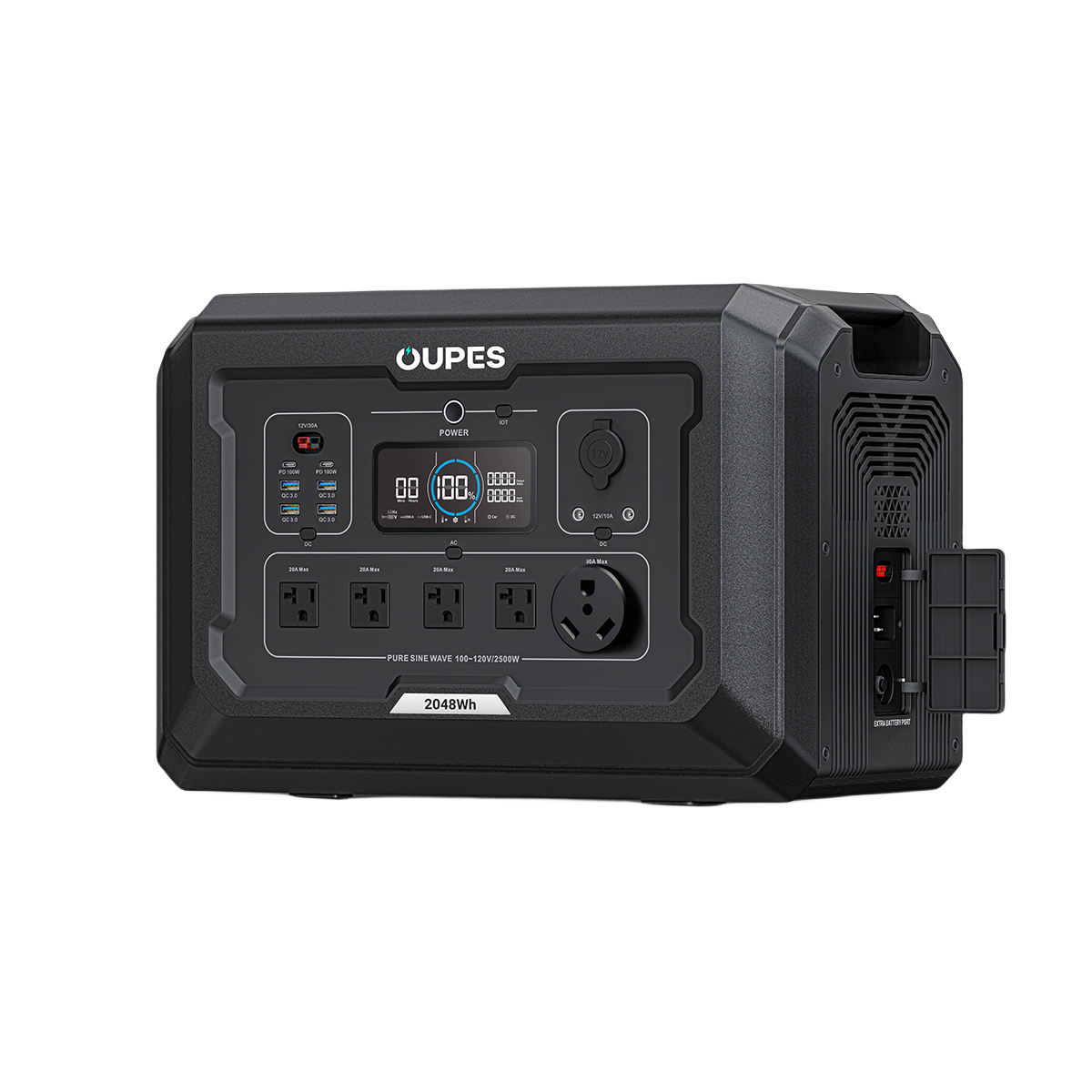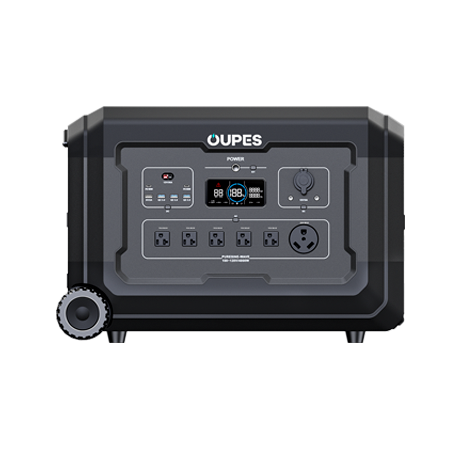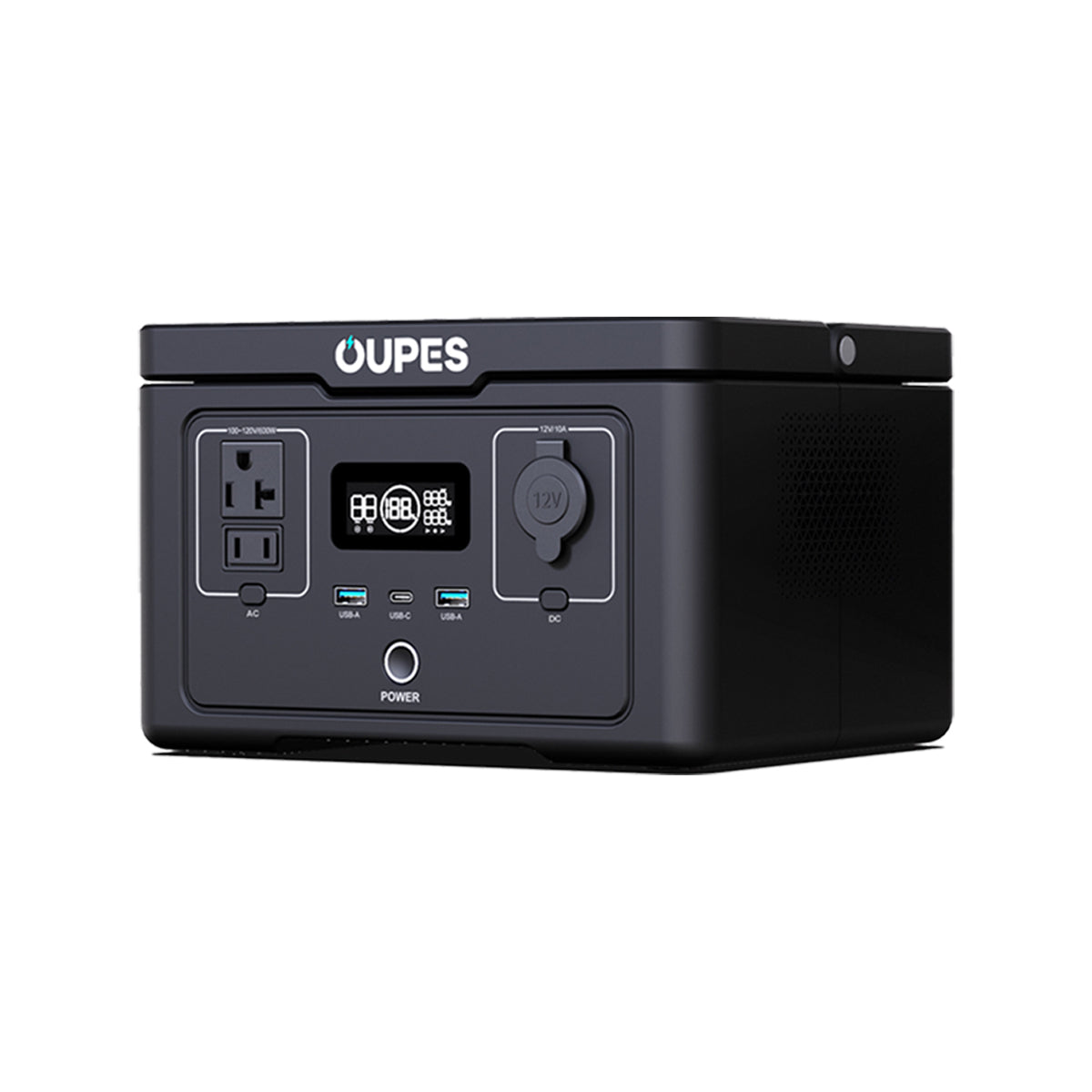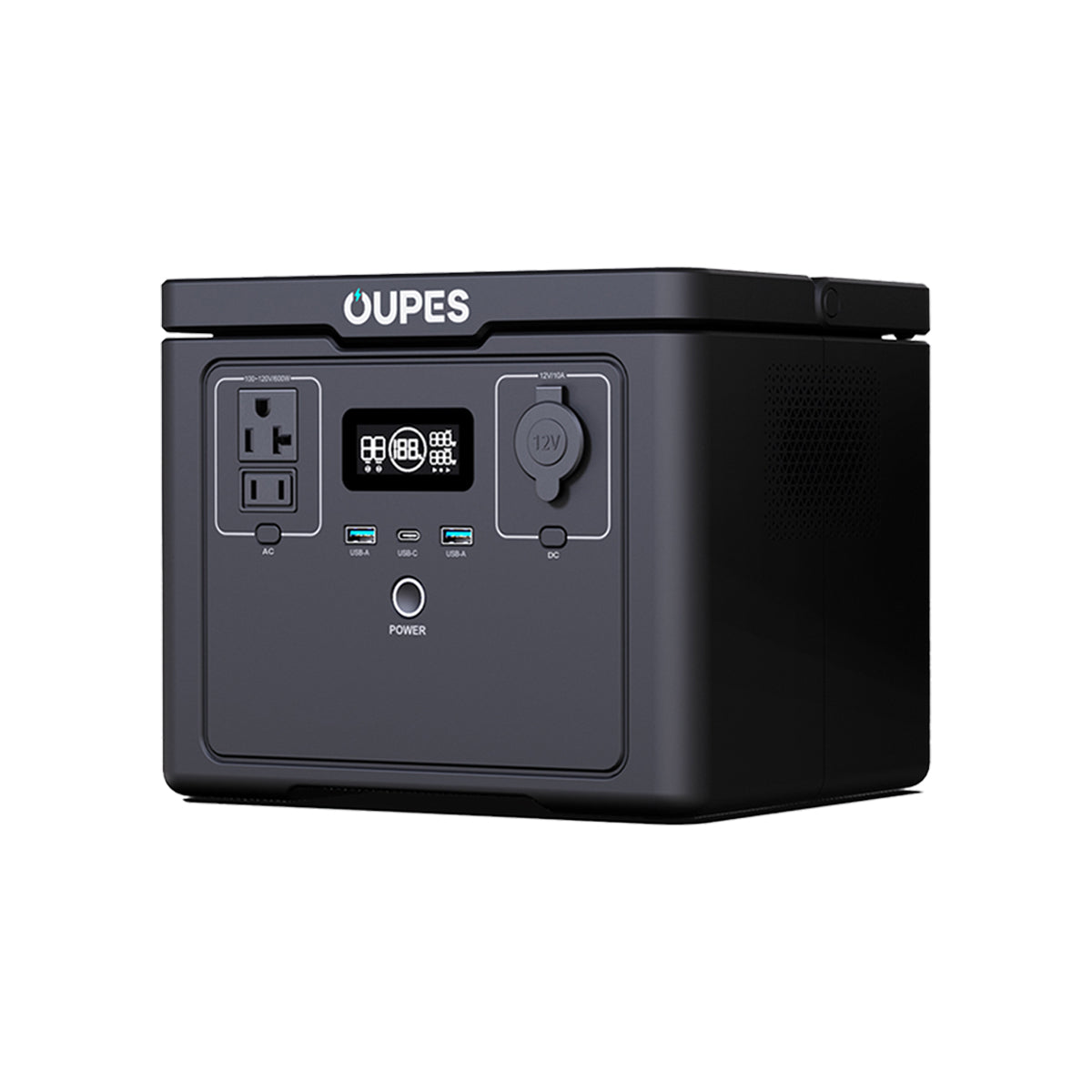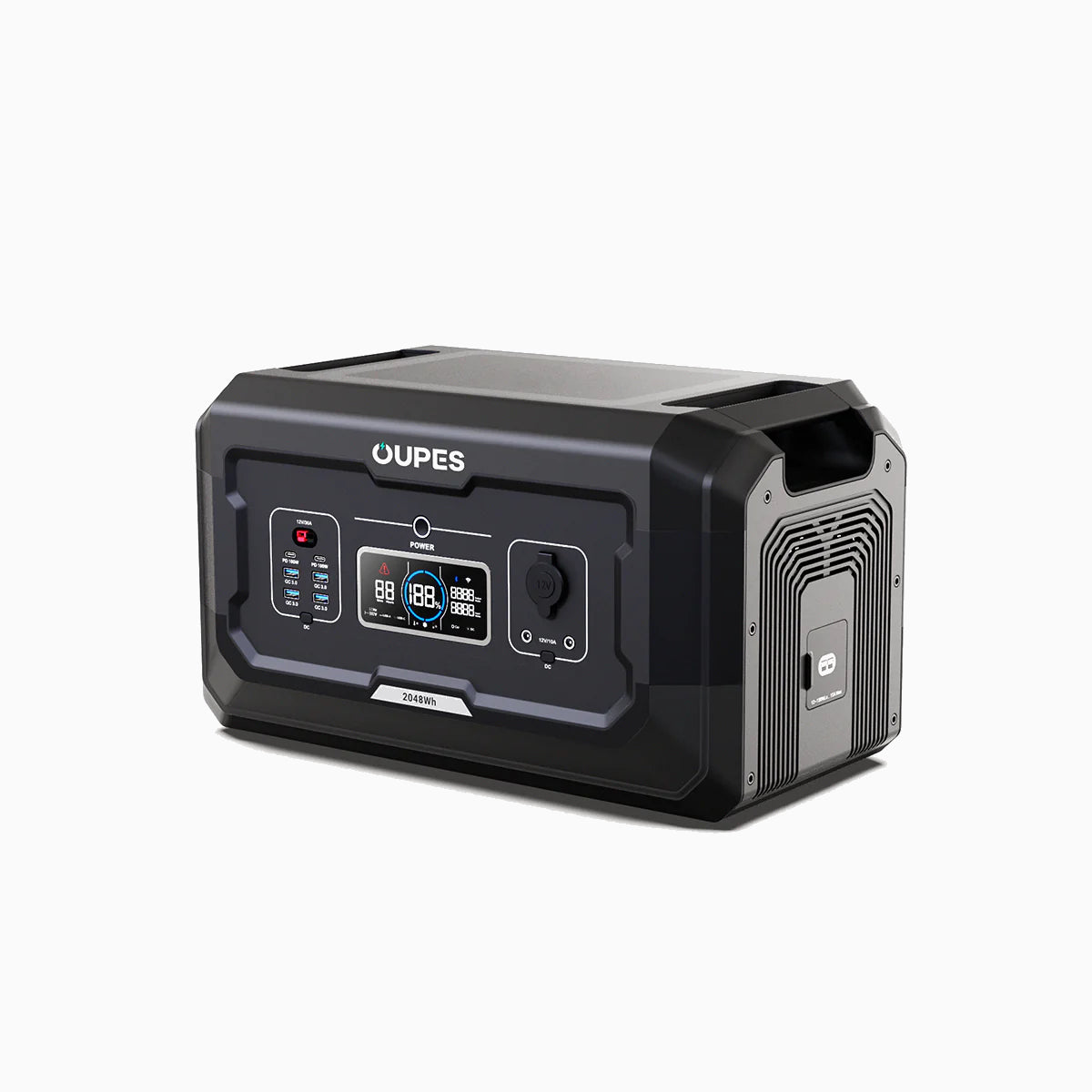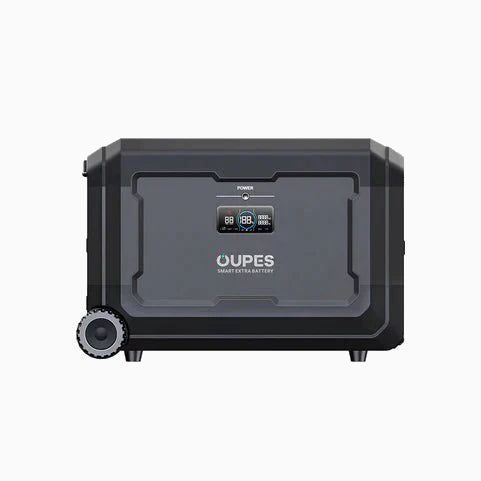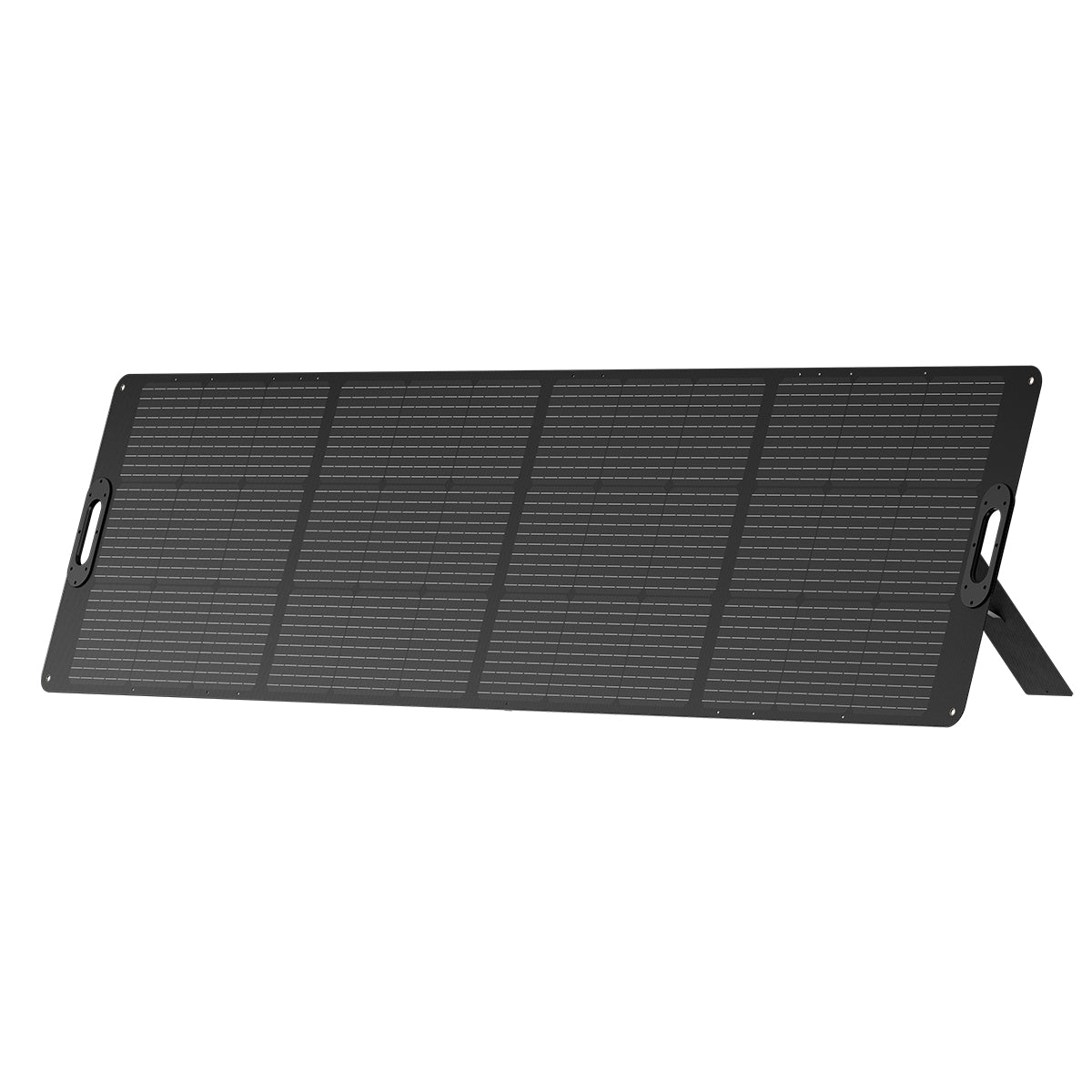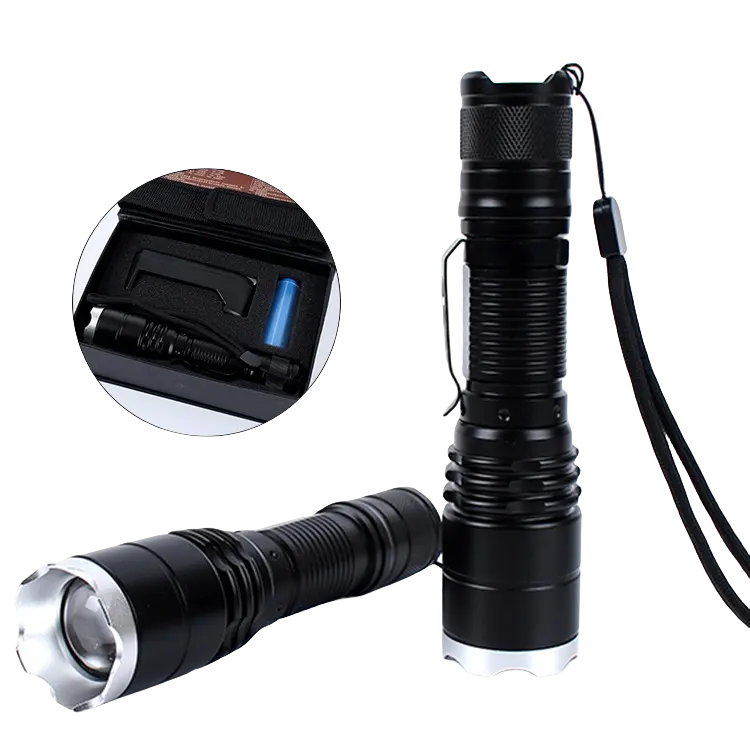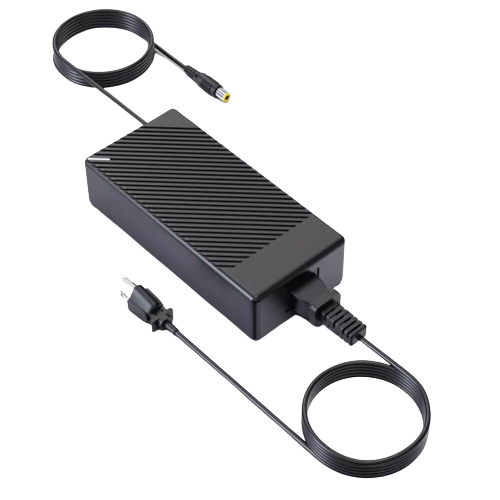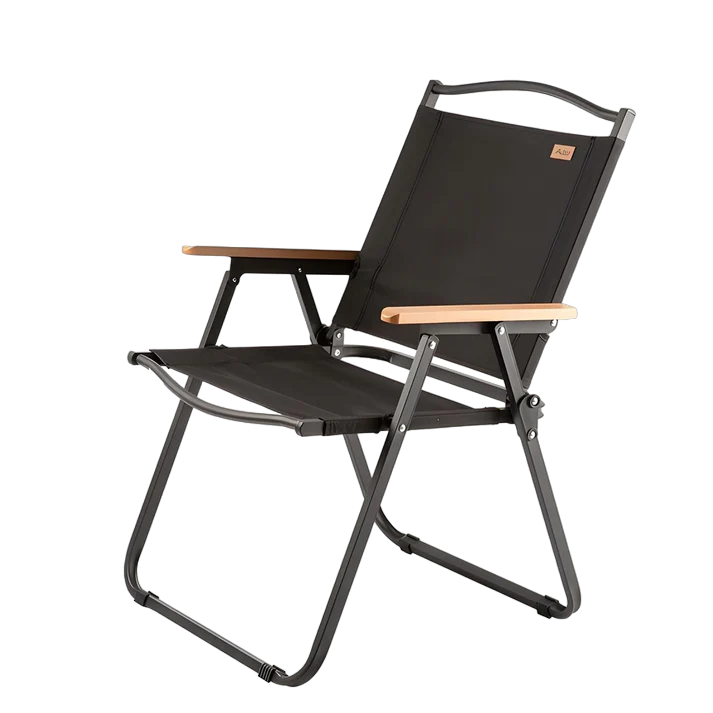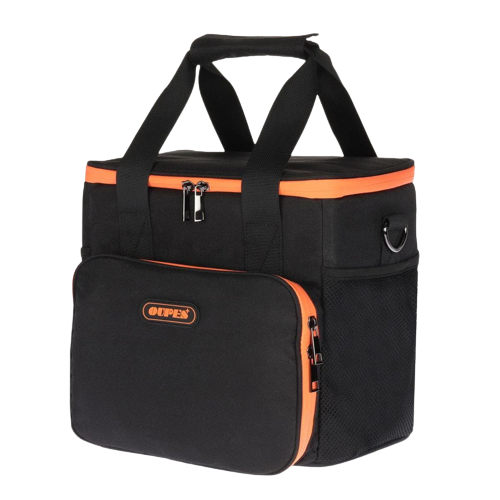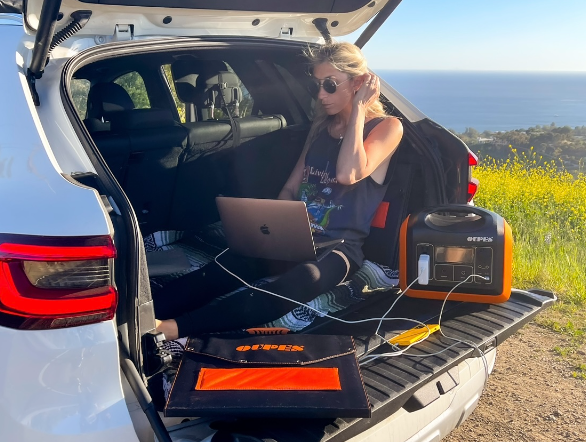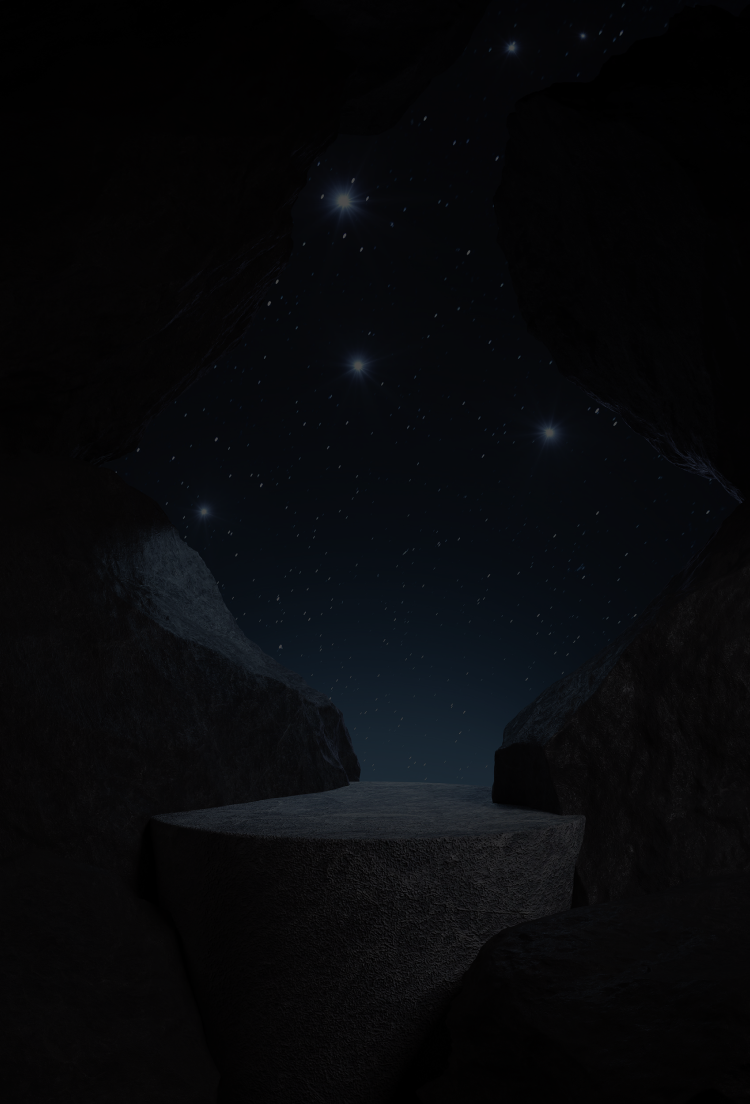Ultimate Guide: How to Live Off The Grid
Many people are increasingly attracted to living off the grid, moving away from traditional lifestyles to reduce their dependence on mainstream power supplies, lower their carbon footprint, and cut down on high electricity bills.
Yet, it's important to understand that living off the grid comes with its challenges. It requires dedication, learning new skills, and securing the right resources to turn your dream into reality. Essential for off-grid living is a steady and independent power source, for instance, an off-grid solar generator.
OUPES's Solar Generators serve as an exemplar of efficiency and potency within the domain of off-grid solar solutions. These systems amalgamate OUPES Solar Panels with Portable Power Stations, converting solar energy into electrical power to energize your devices.
What Does Living Off The Grid Mean?

Choosing to live off-the-grid means deciding to disconnect your home from the widespread electrical network. This involves finding ways to power up your gadgets and run household appliances like refrigerators, heating and cooling systems, and water heaters, especially in areas far from the main power supply.
People who desire independence and harmony with nature often choose this lifestyle. They commit to generating their power using solar panels, wind turbines, or water power systems.
However, it's important to remember that living off-grid doesn't mean cutting off from community or social interactions. The main aim here is to reduce reliance on public utilities and lead a sustainable life. In this discussion, we'll explore both the benefits and challenges of living free from the grid's constraints.
Why Choose To Live Off The Grid?
Human activities are transforming our cities into hotspots, pushing people towards a lifestyle off the grid as a defense against environmental harm. This change not only helps protect the environment but also reduces the high costs of utilities. Let's look at more reasons to choose this independent lifestyle.
Lower Carbon Footprint: Moving away from traditional energy sources to renewables greatly reduces our dependence on non-renewable resources, leading to less waste and more self-sufficiency.
Stress Reduction: Being closer to nature can soothe our minds, reducing stress and improving our mental and physical health.
Increased Confidence: Learning how to live independently from public utilities boosts confidence and promotes a culture of self-reliance.
Minimalist Living: Choosing to live simply by opting for sustainable energy options reflects a minimalist lifestyle that brings a deeper sense of purpose and satisfaction.
Pros And Cons Of Living Off The Grid
Prons
Cost Savings: In a time when electricity prices are soaring, people are looking for alternative energy sources. Living off the grid not only reduces bills for utilities, food, and general consumption but also helps save money.
Environmental Benefits: Choosing this lifestyle greatly reduces your impact on the environment, leading to a more sustainable and eco-friendly way of living.
Protection from Power Outages: Depending on the main power grid you are susceptible to blackouts. By living off the grid, you eliminate the worry of losing power, ensuring a constant supply.
Cons
High Startup Costs: Starting an independent lifestyle with your own energy, water system, and waste management requires a significant upfront investment.
Intensive Effort Required: Living off the grid takes a lot of work to maintain your power and water supply. Careful planning can make off-grid living more comfortable.
What Are The Types of Living Off The Grid?

Extreme
Living off the grid, especially in extreme conditions, often begins with a significant challenge. Take, for example, the fires in California that destroyed homes and forced people to live in a more primitive way.
This simpler way of life, often called "roughing it," means living in a basic shelter without the usual electrical connections or running water. In these situations, finding drinkable water often means turning to nearby rivers or lakes.
For power, many turn to an off-grid solar generator to harness the energy of the sun, powering their devices. While this is a cost-effective approach, it also brings its own set of difficulties in an off-grid lifestyle.
Partial
Choosing to live a semi-off-grid lifestyle stands out as a more practical and enjoyable option for most people, compared to the starkness of being entirely off-grid. The core aim here is to reduce dependence on public utilities while increasing self-sufficiency.
In this approach, individuals go for a standalone septic system rather than connecting to the public sewage system. Likewise, when the cold season hits, there's a tendency to move away from traditional electric heaters, favoring the warmth provided by wood-burning stoves for heating homes.
Modern
Choosing to live autonomously and off the grid has become a popular trend among those looking to blend the comforts of modern living with the independence of self-sufficiency. This lifestyle choice, while requiring a significant upfront financial commitment, ultimately leads to a reduction in ongoing living expenses.
Living completely off the grid offers the freedom to explore a range of energy options, enjoy the latest in home technology, and access clean, natural water sources. People who adopt this lifestyle often equip their homes with high-tech kitchen gadgets to prepare meals. Some even take it a step further by engaging in farming and raising their own food.
Living Off The Grid Essentials

Shelter
In the quest to embrace an off-grid lifestyle, the paramount consideration should be securing a steadfast abode. Whether it's a recreational vehicle, a secluded hut nestled amidst sylvan settings, or a diminutive dwelling far from the urban sprawl, these sanctuaries serve as quintessential havens for off-grid living.
Power
Behold, the quintessence of autonomy in energy – the vital force enabling warmth in the wintry months, culinary arts, and the cherished communion with kin and comrades. For those dwelling beyond the grid's embrace, solar-powered generators stand as the most steadfast allies in electricity generation.
Embrace the OUPES Solar Generator, a marvel of portability and featherlight design, offering the boon of energy creation at any moment and locale. This solar-driven apparatus is a symphony of collapsible photovoltaic arrays and a power station of formidable capacity.
Water
Subsequently, it becomes imperative to secure unimpeded access to a consistent flux of drinkable H2O for ablutions, hydration, and sanitation. Opting for a locale proximate to subterranean aquifers, brooks, or rivers is advisable. Nonetheless, this necessitates the allocation of resources towards an integrated purification apparatus to refine the water before its utilization.
Food
Embarking on a journey to live autonomously off the grid necessitates dedication to agronomy, wildcrafting, husbandry, and angling. Numerous individuals elect to cultivate and reap their sustenance, aiming for autarky, while others amass substantial reserves of desiccated provisions and imperishable edibles as a safeguard.
Bear in mind, that the essence of off-grid existence hinges on self-reliance in the wilderness. Meticulous preparation before embracing this lifestyle is crucial to circumvent unforeseen predicaments.
How to Live Off The Grid?
To embark on a life detached from the conventional grid, one must venture into the forest, erect a homestead, harness solar energy, and bore a well. This endeavor, seemingly straightforward, demands meticulous strategizing, thorough groundwork, and diligent effort to transition to an off-grid existence. Herein lies the guide to adopting an off-grid lifestyle.
Purchase Land for an Off-Grid Home
Embarking on an off-grid existence necessitates the initial step of selecting an appropriate parcel of land. This often involves finding a secluded area, distant from the grasp of stringent construction edicts and permit requisites. Such territories are typically more affordable and burdened with lesser property levies. In your quest for the perfect plot, consider these elements:
Edaphic Quality: For those aspiring to cultivate their sustenance, it's crucial to ascertain that the terrain boasts fertile soil and ample space for either greenhouses or elevated garden beds, ensuring flourishing crops.
Solar Illumination: Prospective solar energy enthusiasts must verify that their chosen expanse basks in abundant sunlight. Eschew plots smothered by other edifices that could eclipse the sun's rays.
Statutory Obligations: Embracing an off-the-grid lifestyle carries legal connotations. It's imperative to familiarize oneself with the local zoning ordinances, construction codes, and regional statutes.
Build or Buy an Off-Grid Home
In the realm of independent living, one can choose between purchasing a rural home or building an off-grid house from scratch. When buying an existing home, consult real estate experts to assess its potential for conversion to an off-grid lifestyle. Alternatively, consider a mobile dwelling like a modern camper or RV, complete with kitchens, bedrooms, and bathrooms.
Install a Solar Power System
In the sphere of self-sufficient habitats, the foundational requirement for a solitary dwelling hinges upon the critical establishment of a steadfast photovoltaic power system, underscored by a durable energy storage unit and a select assembly of photovoltaic modules.
Within this realm, we discern a triad of photovoltaic module categories: the monocrystalline, polycrystalline, and the somewhat elusive thin-film variants. These groups distinguish themselves through their divergent attributes of productivity and the substances that birth their form.
Monocrystalline silicon photovoltaic cells stand as the pinnacle of photovoltaic module productivity, capturing and converting the apex of solar luminance with unmatched efficiency.
By contrast, polycrystalline variants exhibit a diminished efficiency relative to their monocrystalline brethren.
Thin-film photovoltaic modules, while holding a unique position within the solar hierarchy, are acknowledged as the most economical choice yet concurrently bear the lowest level of efficiency, making them less favorable in a majority of application contexts.
Certain residences boast photovoltaic modules that are woven into the existing electrical grid framework, facilitating an integration of energy into unified grid systems. On the flip side, the autonomous solar setup is marked by the integration of photovoltaic modules and an ancillary battery apparatus, operating in concert to energize detached electronic devices.
OUPES Solar Generator Kit represents a superlative fusion of the OUPES Portable Power Stations and Solar Panels, functioning concertedly to engender electricity for a self-sustained existence devoid of conventional utilities.
The solar panels have been skillfully crafted using monocrystalline silicon solar cells, renowned for their superior efficiency and conversion rate, achieving efficiencies as high as 22%. Additionally, the power stations come fitted with LiFePO4 batteries, expertly storing the electricity produced, ready to power a wide range of home appliances.
Water System
In the realm of off-grid residences, an immaculate energy source reigns supreme. When dwelling far from the conveniences of municipal or city water, your priority should be securing a parcel of land blessed with a natural aquifer.
Among the potential choices, a borehole stands as an exemplary albeit costly selection, with the price scaling by the drilling depth. Once the subterranean passage is excavated, the ensuing expense of upkeep dwindles significantly, rendering you the privilege of indulging in a bountiful supply of nourishing, mineral-laden aqua.
Heating & Cooling
When it comes to the thermal management of an off-grid domicile, the focal point invariably centers on power generation. The requisites are contingent upon the dimensions of your abode and the climatic idiosyncrasies of your locale.
The concept of passive thermoregulation emerges as a preeminent stratagem to orchestrate the temperature milieu within your dwelling, all the while eschewing the profligate dissipation of energy resources.
For instance, one can adroitly harness the efficacies of naturalistic methodologies, such as reasonable insulation, astute positioning of fenestration apertures, strategic installation of sun-shading apparatus, and the meticulous provision of aeration, to assiduously attenuate one's dependence upon energy-intensive thermal modulating contrivances.
Waste Disposal
In the world of living off the grid, handling waste is a critical aspect that needs careful consideration. You have the option to go with a traditional septic system or choose a composting toilet setup, both of which are designed according to local and national standards and are excellent choices.
Composting toilets, in particular, stand out as a highly effective solution, especially for smaller homes. On the other hand, septic systems are a reliable and long-lasting method for managing wastewater, mainly found in countryside areas, known for their durability over many years.
Grow Your Food
In the pursuit of self-sufficiency off the grid, acquiring the skill of cultivating sustenance becomes paramount. Commence your journey by establishing a verdant oasis through the art of gardening, then employ the ingenious method of drip irrigation to bestow hydration upon your burgeoning Eden.
A plot spanning approximately 4000 square feet shall suffice to sustain a solitary individual for a year, ensuring nature's bounty is at your fingertips. As you deliberate upon the flora to nurture within your horticultural haven, it is imperative to scrutinize the local climate, opting for a site that boasts impeccable drainage and basks in the radiant embrace of sunlight for no less than six hours daily.
Communities and Resources
Living a life disconnected from conventional society can, at times, become an isolating experience. However, the realm of off-grid existence offers a plethora of intriguing alternatives, including communal living spaces and utopian settlements, where one may encounter a more substantial presence of fellow off-grid enthusiasts.
How to Live Off The Grid FAQs

How much money do you need to live off-grid?
Calculating the precise expenditure associated with a lifestyle disconnected from the conventional grid is contingent upon numerous variables such as geographic location, the caliber of utility systems, the magnitude of self-sufficiency, and other factors.
As a general estimate, the total expenses encompassing land acquisition, the erection of an autonomous off-grid dwelling, and procurement of essential utilities typically span from $50,000 to $150,000.
It is imperative to bear in mind that the principal financial allocations in this endeavor encompass the acquisition of land, the construction of a shelter, the procurement of water supply, the generation of electricity and heat, and the establishment of sewerage systems.
Is it legal to live off the grid in the United States?
In the realm of American states, commencing an existence devoid of conventional utilities is not constitutionally proscribed. Nevertheless, one must remain cognizant of the assorted mandates dispersed across the nation's geographic expanse when embarking on the odyssey of establishing an off-grid abode.
For instance, certain regions necessitate the acquisition of specialized authorization for the installation of wells and septic reservoirs.
How do beginners live off the grid?
If you are a beginner and wish to live off the grid, the first step is to learn essential skills like cooking, carpentry, and gardening. You can even join an existing off-grid community or sustainable projects to gain practical experience and reduce costs during the transition period.
If you don't wish to live in an existing community, consider learning natural building techniques to construct an off-grid home, explore renewable energy sources, and grow your food.
Final Thoughts
After diving deep into the details of adopting an off-grid lifestyle and understanding its essential needs, you're all set to begin your unique journey into living off the grid.
Choosing an off-the-grid solar system emerges as a key method to reduce stress and add excitement to your off-grid adventure. This choice goes beyond just cutting down on high utility bills; it also offers the freedom and sustainability that come with self-reliance.
OUPES Solar Generators are a prime example of a solar solution capable of powering both small and large appliances with ease. Their simple setup and environmentally friendly way of supplying power to both indoor and outdoor devices mean you can enjoy a continuous energy supply, eliminating worries about electricity.
